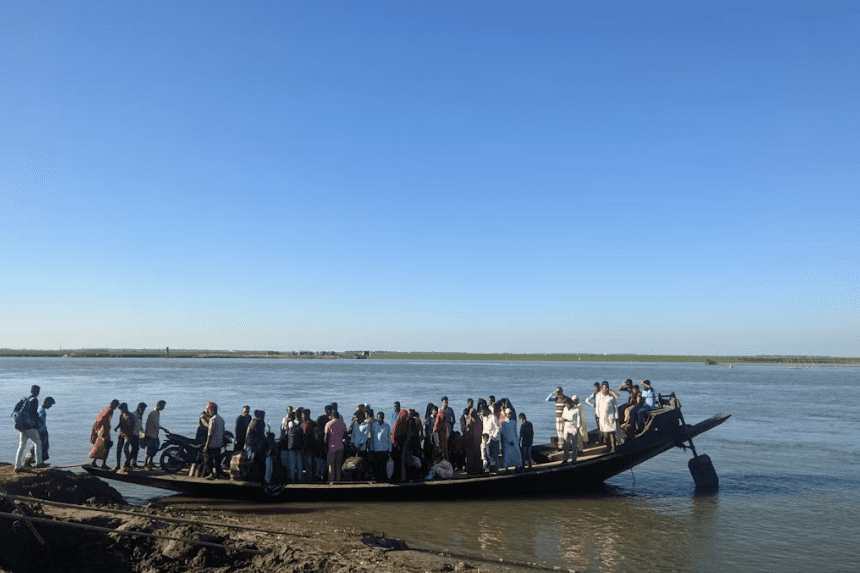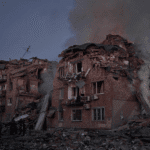This was the day that Noorul Amin had a short telephone call, and his life was to be transformed. He heard that his brother, Kairul, and four other family members were among 40 Rohingya refugees who were reportedly deported to Myanmar. The group was herded on naval ships, shoved into the sea, and sent to fend for themselves.
Myanmar is still a country in a civil war after the 2021 coup, and the military junta is fighting against armed opposition. Reunification is virtually a far-fetched dream for families such as the Amin family.
What transpired with the deported Rohingya?
It is indicated by witness testimonies that the 40 refugees, who were all registered by the UNHCR, were abducted in Delhi in the name of biometric verification. They were flown to the Andaman and Nicobar Islands, instead of moving back home, to a detention facility where they were transferred to the navy ships.
Some of the refugees said they were bound, blindfolded, and humiliated. After hours at sea, they were put in smaller boats, given life jackets, and ordered to jump into the ocean before they could even reach the shores of Myanmar. Here is the link to our article on Afghan Deportees Die.
What is the situation in Myanmar now?
The expelled Rohingya nationals have been dispersed in Tanintharyi province of Myanmar, where they are being temporarily sheltered by the local resistance groups. Nevertheless, they refer to the place as a war zone, where no one is sure whether he/she will survive or not. Indian families that have been abandoned are worried about their security, with armed conflict in the area intensifying.
Why are Rohingya Refugees deported to India?
Rohingya are not considered refugees in India, but as illegal immigrants under the Foreigners Act. Members of the community have been regularly charged and sent back to their homelands, even though the UN has voiced warnings that such moves endanger lives in dire ways.
Human rights organizations claim that attacking this minority group is a greater trend of religious and ethnic discrimination. There is an estimate of 40,000 Rohingya refugees in India, and the advocates worry that there will be further deportations. Here is the link to our article on the Deportation Case Impact.
What Do Legal Challenges Say?
A case has been carried to the Supreme Court of India with a petition to give back the deported refugees, stop all removals, and compensate the previously deported. As the case lies in wait, the incident has opened up a furor among the activists who cite that international law has been breached.
Final Thoughts
The humanitarian crisis of the Rohingya refugees is one of the most burning in South Asia. Thousands of people are at risk of being forcibly deported, with Myanmar continuing to be in trouble, as well as India pursuing a hardline policy. The plight of this weak group of people will continue to worsen unless the governments and world organizations take decisive action.








